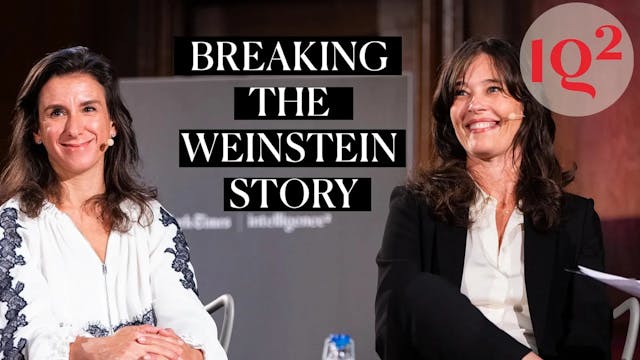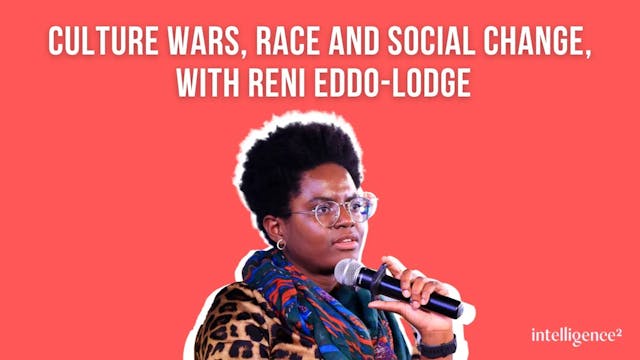If You Believe You Are a Citizen of the World, You Are A Citizen of Nowhere
History & Social Policy
•
1h 31m
“If you believe you are a citizen of the world, you are a citizen of nowhere. You don’t understand what citizenship means.”
When Theresa May uttered these words at the Tory party conference in 2016, there was uproar. May was targeting the liberal establishment, who flit business class from Mayfair to Monaco, from Davos to Doha; those in positions of power, who, as May put it, ‘behave as though they have more in common with international elites than with the people down the road’.
But many people who don’t fit in this frequent flyer category felt under attack too. For this group, believing you are a citizen of the world is a badge of honour, not shame. The cosmopolitan impulse, they believe, isn’t about loyalty to any single community. On the contrary, you can be a citizen of your street, your city, your country and the entire globe. And in our interconnected world, those with a burning concern for global justice, for the environment, for the strife and carnage happening beyond our borders, see themselves as part of humanity at large – as citizens of the world.
But for a different group of people, May’s words resonated deeply. These are the people who feel genuinely rooted in their communities, who feel the strongest sense of solidarity with those who share their history, language and other elements of a common culture. These people often feel sneered at as nationalists or worse, as bigots, by the elites who do not understand their profound intuition that the nation state is the natural expression of group identity.
To unpack these divisions at the heart of contemporary politics, Intelligence Squared is bringing together Simon Schama, one of Britain’s most celebrated historians, who embodies the cosmopolitan spirit; and Elif Shafak, the Turkish novelist and commentator, who calls herself a ‘world citizen and a global soul’. Joining them will be the author David Goodhart, whose bestseller The Road To Somewhere identifies two tribes –’Somewheres’, who feel strong local and national attachments, and ‘Anywheres’, global villagers who value autonomy and mobility; and David Landsman, a former diplomat now in the corporate world, who is concerned about the growing intellectualisation of work, which is widening the gap between the professional classes and everyone else.
Up Next in History & Social Policy
-
Jodi Kantor and Megan Twohey on Break...
In this Intelligence Times conversation, chaired by Carrie Gracie stage Two of Weinstein's former assistants are joined on stage by the two New York Times reporters, Jodi Kantour and Megan Twohey, who broke the Harvey Weinstein sexual misconduct allegations and triggered the #MeToo movement.
In...
-
Culture Wars, Race, and the Backlash ...
Has society gone ‘woke’? Is antiracism being hijacked by the culture wars? And how do we make sense of the racial reckoning of 2020 and the backlash against it? In this live London event filmed in July 2022 award winning journalist, podcaster and author Reni Eddo-Lodge came to Intelligence Square...
-
The Catholic Church is a Force for Go...



